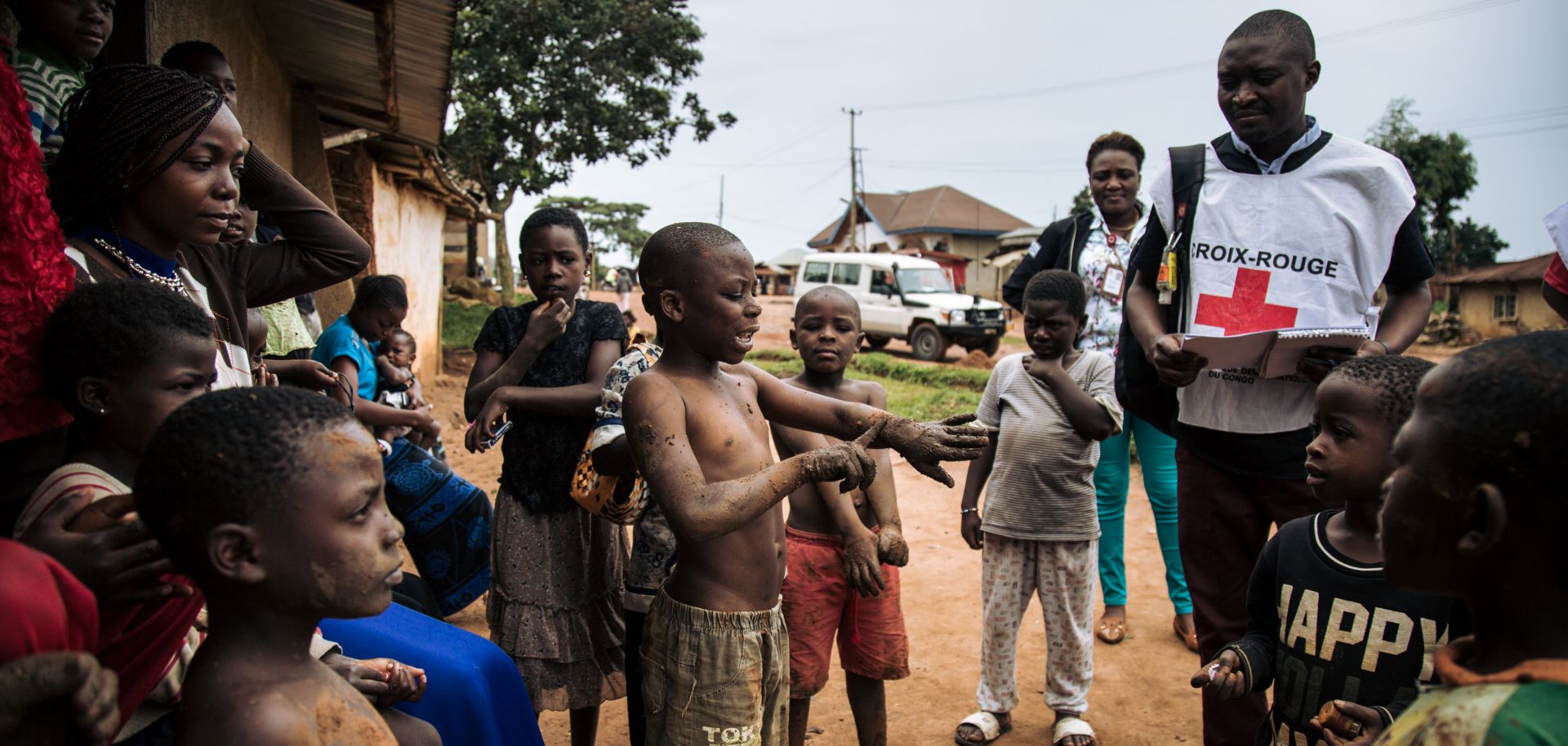ASSESSMENTS
In Eastern Congo, Violence Plagues Anti-Ebola Efforts
Sep 26, 2019 | 10:00 GMT

Red Cross members visit families in northeastern Democratic Republic of Congo to listen to their fear of the Ebola virus on Aug. 31. The Congo's inability to establish control over its easternmost territories has exacerbated the country's current Ebola outbreak.
(ALEXIS HUGUET/AFP/Getty Images)
Highlights
- Active internal conflicts in the eastern regions most affected by the Democratic Republic of the Congo's current Ebola outbreak will continue to limit the reach of preventive measures and international vaccination efforts.
- The Congolese government's inability — and reluctance — to secure these remote areas risks enabling the spread of Ebola into urban areas and neighboring countries by prompting an outpouring of refugees.
- The Congolese government will continue to focus its limited resources on threats to its political authority and lucrative mining industry, leaving the country's east vulnerable to future security and health emergencies.
Subscribe Now
SubscribeAlready have an account?
